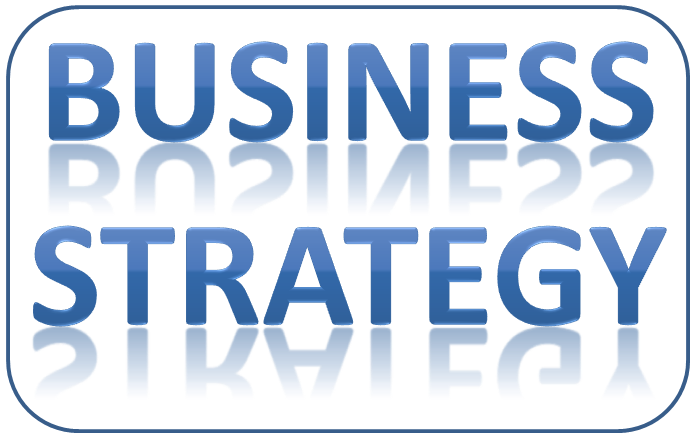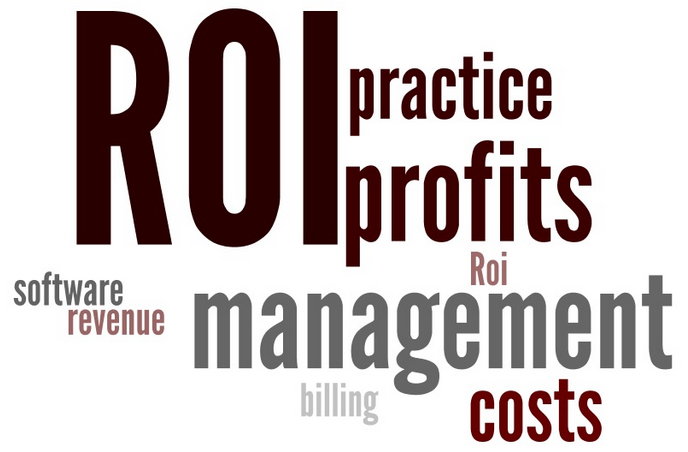Focus, Identify, Create Value and Repeat

by Garrett B. Gunderson Your recipe for working with people you enjoy, know you can help, and making more money. To be as productive as possible it is essential to be crystal clear about what your business is specifically designed to do, and who you are ideally positioned to serve. This means identifying your best existing patients and figuring out who they really are as people. If you can understand what age group, gender, education level, what they do for hobbies, what books they read, where they hang out, how much money they make, etc. then you can make it a point to go out and find more people who are just like your best patients/customers. To do this make a conscious choice to determine who is already existing and “Ideal”, and build a relationship with them. Have appreciation dinners, invite them out to hike or snowshoe, or share experiences with them. Let them become more than just clients or patients – build a relationship. In this process you will not only learn how to serve them better, you’ll understand how to attract more people just like them. This leads to a business full of people that you love to see and who love to come see you. Once this happens the profits are an inevitable result of serving those that appreciate your value the most. They key is to overcome the concern that is you focus or get to narrow that you will miss out on others you could have otherwise have worked with. Here are some questions and considerations to help address and overcome this objection. If you were to look at your top 20 percent of people you work with what percentage of your revenue are they responsible for? How many people have they referred versus the bottom 20 percent? What percentage of your time is used for addressing people that do not pay on time, do not refer people and do not appreciate your service? What impact does that have on your energy, confidence and ultimately the bottom-line? Do you think there are plenty of people in your community or even your state that fit the “ideal” profile? What would your life look like if that was who you spent your time and focus on? What level of value could you create for them? How would it allow you to focus more on value creation and less on appeasing people that do not appreciate who you are, what you do or that simply are not compliant with implementing your recommendations and getting the full value you offer? So, find the best people that you enjoy working with the most. That gets the best results and refer the most people. Focus on building those relationships, cultivating those relationships, and asking them how you can create the most value for them. To discover other overlooked opportunities most business owners miss and to gain more freedom in your business as we expose models most didn’t think was possible, yet are achievable in a short period of time, check out www.freedomfasttrack.com/cfw as I interview business strategist Brandon Allen. Brandon opened up and built Wells Fargo branches for a decade before becoming the COO of my firm, Freedom FastTrack. In order to more fully express his expertise and purpose he now shares his insights and discoveries through business expansion and management with Freedom FastTrack members. In a bottom-line, no fluff interview he will be sharing how to: Integrate metrics and numbers to improve business Unveil the biggest mistakes business owners make in managing their business (he exposed this for me and transformed my INC 500 business) How can you create and leverage your authority in your market How to address and confront employee behavior in the business Time management The key habits to run a successful business and more
Chiropractic Software Return on Investment

What’s Your ROI? Chiropractic Software Return on Investment with us is high in several categories. Getting down to the business of running a practice Can Dr. Ben’s practice get a handle on using ROI for business decisions? “ROI?” Carmen repeated. “Return on Investment is simple. How much are you investing, and what kind of return are you getting?” “But what’s the answer supposed to be?” Ben asked. “Are we going for 100%?” “It really doesn’t work that way.” Carmen frowned. “I know you went to chiropractic college, not business school, but still — didn’t you talk about this in practice management class or something?” “I never had a practice management class. I’m not sure that’s even a thing. And do you think you could help me with this without the condescension?” Carmen gave her husband a hug. “I don’t mean to be condescending. It’s just that this is a pretty basic concept. It’s hard for me to believe that you’ve never thought about it in your practice.” “Maybe it’s not as simple in a medical practice as it is in a pizza parlor,” suggested Ben. “Now who’s being condescending?” Carmen settled a pillow behind her back. “I don’t mean it that way,” protested Ben. “Listen, you know how much every pizza is going to bring in, right? They have prices. And the cost is predictable, too. You know how much the ingredients cost and you could probably figure out exactly how much a pizza costs and how much money it brings in. It’s not like that for us. We don’t know exactly how much each appointment will bring in or exactly what costs will be associated with a treatment plan, and we’re really not used to thinking in those terms.” “Well, let’s simplify it. You know your expenses, right? Some of those things you pay for are cost centers and some are profit centers. So you pay for electricity because you have to. You don’t get any higher revenue by buying more electricity. But you sell supplements and books at a profit, so buying more of those brings in more revenue, as long as you sell them all.” “Now we’re getting somewhere,” Ben said excitedly. “What about all the things that are somewhere in between? Practice management software, for example. We’ve made some investment there already, but I’m getting push-back from my partners. They see it as a cost that’s avoidable. And their whole concept of ROI is about reducing costs wherever we can.” Carmen shook her head. “That’s crazy. Return on investment is about measuring the return you get on your investment and making more investments on that basis, not on trying to stop making investments that pay off.” “And now we’re back full circle! I don’t think we really understand ROI.” “I’m beginning to believe you,” Carmen agreed. “What are you going to do about that?” Ben sighed. What was he going to do about that? Can Dr. Ben’s practice get a handle on using ROI for business decisions? Disclaimer: For HIPAA compliance, all characters appearing in this post are fictitious. Any resemblance to actual persons or actual events is purely coincidental.
Is it truly one of the inevitable things in life?

Why although paying taxes is inevitable, overpaying them doesn’t have to be. How would you feel if you found out you were overpaying your taxes? Most people want to pay as little in taxes as possible, but many times have no idea of whether they are overpaying or not. Without going into huge amounts of detail (and boring your socks off) there are a few simple things to know about taxes that can make a big difference. First, there is no better way to keep more of your own money than to make more. Often people pass up income because they might have to pay more in taxes – that’s just crazy. If you got to pay 25 cents to earn a dollar, how often would you do it? Never pass up a chance to make more money in congruence with your purpose. If you own a business, do you have the proper entity structure to maximize your tax advantages? Not all entity structures are created equal so if you have a partnership, sole proprietorship, or even the wrong type of corporation for your business, you may be missing out. Learn about how to take your income as well. Salary may be taxed differently than dividends. In my research with 117 people in my program, 107 were overpaying their taxes. More alarming is that 2/3rds felt they had it all handled and their accountant was doing a great job. If you want to find out if you are overpaying or not, take a quick look at our Financial Health Assessment at www.freedomfasttrack.com/cfw and answer a few questions. If you answer no or uncertain, then check out the Curriculum for Wealth series when I go into depth and leave nothing locked away as “secret” as I dig in with the CPA in our network to give you the insights necessary to find money that is being overpaid. So, you can check with your tax professional on the best way to employ these ideas for your specific situation, or join us on the Curriculum for Wealth as we go through the checklist of most important areas to save tax.
Why Professionals Get Screwed on Taxes

How to Reduce Your Tax Burden & Boost Your Productivity by Garrett B. Gunderson with Brett Sellers, CPAAs a Financial Advocate to chiropractors, dentists and other professionals, I once performed a survey of my doctor clients. Out of 117 doctors, 107 of them were overpaying on their taxes—and many of them by tens of thousands per year. This can be easily avoided, and reducing your taxes is the lowest-hanging fruit for increasing your cash flow and productivity. Here are the most important things every business owner should know about taxes: Don’t Let the Tax Tail Wag the Dog of Productivity Would you rather pay $1 million or $10 million in income tax? Most people say $1 million. My answer is always $10 million, because it would mean I made much more money than if I owed $1 million. Taxes should definitely be taken into consideration with any financial plan, but some businesses actually don’t want to produce more because they’re afraid of paying too much in taxes. They base financial decisions primarily on tax ramifications. In other words, they let the tax tail wag the dog of productivity. Bottom line: Your first and best defense against taxes is always to earn another dollar, rather than limiting productivity and settling for a lower income in the name of saving on taxes. Be Proactive, Not Reactive By Using a Tax Preparer, Rather than a Tax Strategist Most small businesses have a CPA that simply prepares their taxes at the end of each year. This makes them reactive rather than proactive. Instead of anticipating and strategically solving potential tax problems, such tax preparers scramble to limit your tax liability just once throughout the year. And to accomplish this, they usually tell you to dump as much money as possible into a qualified plan, or recommend other things that you otherwise wouldn’t do except to save on taxes, which creates even more problems down the road. In contrast, a tax strategist makes tax season a non-issue by keeping you organized, creating and tracking financial benchmarks throughout the year, and limiting your tax burden. Plan for the Future, Don’t Defer to the Future Typical scenario: At year’s end you bring your taxes to your CPA, and one of her primary and automatic recommendations is to put money in a qualified retirement plan. This is lazy accounting at best. Are taxes going up or down in the future? Do you plan on being more or less successful in the future? So why would it be a good strategy to save on taxes today in a way that creates a bigger tax burden tomorrow? Of course, traditional retirement planners will tell you that when you retire you can live on 70 percent or less of your pre-retirement income, and that living on this percentage will lower your tax bracket. First of all, no one knows exactly what future tax brackets will be. And with the current economic and deficit environment do you think that tax rates are going to stay at these historic lows? Historical marginal tax rates for the lowest and highest income earners in the United States. Source: U.S. Bureau of the Public Debt Second, is this really how you want to spend your retirement years: living cheaply, afraid to spend the money you’ve earned for fear of triggering tax consequences? Do you really want to have a lower standard of living when you retire? In contrast to qualified plans, there are other products and strategies that provide much better exit strategies upon retirement while still offering tax benefits during the growth phase. This doesn’t necessarily mean you shouldn’t ever contribute to a qualified retirement plan. But such a decision needs to be part of a holistic, long-term financial plan that supports your purpose and passion, not a reactive and misguided accounting strategy based solely on numbers today. Increase Your Deductions With Confidence Entrepreneurs frequently ask CPAs for a clearly-defined, bullet-point list that spells out legitimate deductions explicitly. But Section 162 of the IRS tax code simply states that you can deduct all “ordinary and necessary” business expenses. For most business owners, this means they can and should be deducting far more expenses than they currently are. Deduct anything and everything connected with your business, while making sure you can build the case to support the connection. Incorporate to Reduce Your Rate I’m shocked by how many people operate as sole proprietors, which is the worst arrangement possible for taxes. Incorporating limits your liability and protects your personal assets, increases your deductible expenses, gives you greater tax flexibility, and helps you build a sellable business. A competent attorney that coordinates the strategy with your CPA can help you choose and properly structure the right entity. Withdraw Business Income Strategically As an owner of a business, you wear at least two hats (you may also be the landlord). You understand that you should be compensated as wages for the practice of dentistry for example, but how you withdraw business profits can have a significant impact on your taxes. Withdrawals can come in the form of additional salary or dividends. Depending on your corporate structure, the withdrawal of dividends can greatly reduce your overall tax because certain distributions of corporate profits are not subject to employment or self-employment taxes. Again, consult with a competent and strategic CPA to get further details for your unique situation. Use Cost Segregation to Benefit from Depreciation If you own your building, “cost segregation” can make a drastic difference in deductions due to depreciation. This effective but under-utilized accounting technique shortens the depreciation period of your assets for taxation purposes, and results in reduced tax liability and increased cash flow. The most effective way of segregating costs and supporting these accelerated depreciation deductions is to engage an engineering firm to perform a cost segregation study. Get Deductions by Investing in Your Business Section 179 of the IRS tax code allows you to deduct the full purchase price of qualifying equipment and/or software

